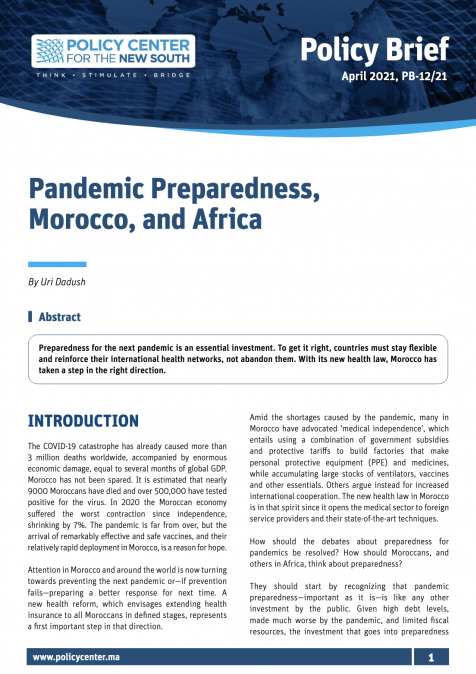La Course au Vaccin Anti-COVID-19 : à la Croisée des Intérêts Géopolitiques et Géoéconomiques
Alors que la pandémie de COVID-19 a mis à nu l’avènement d’un monde désolidarisé, l’élaboration tant espérée d’un vaccin contre le nouveau Coronavirus n’a fait que porter cette désolidarisation à son paroxysme. En effet, la course vers l’accaparement des doses de vaccin a mis en lumière l’image d’un monde désuni où une myriade d’Etats, en quête de souveraineté sanitaire, s’affrontent dans une course acharnée contre la montre. C’est ainsi qu’en sus de leur rôle sanitaire, les grands laboratoires pharmaceutiques sont devenus acteurs d’une compétition géopolitique ayant pour objectif de permettre aux pays qu’ils représentent de dominer le marché des vaccins, leur permettant ainsi de satisfaire leur besoin interne, de regagner la confiance populaire et de relancer leur économie domestique d’un côté, et de se réserver une place d’exception dans les rapports de force internationaux de l’autre. La bataille que se livrent ces Etats est d’autant plus dangereuse que le politique y prime sur le sanitaire, conditionnant l’accès au vaccin à différentes alliances et rivalités géopolitiques. La course au vaccin contre la COVID-19 met particulièrement en danger les pays les plus vulnérables, notamment ceux du Sud, déjà très fragilisés par cette crise sans précédent. Les contraintes logistiques et matérielles limitant les capacités de production posent inévitablement des obstacles à la distribution équitable des doses, les pourvoyeurs peinant d’ores et déjà à satisfaire les précommandes des grandes économies, augurant une pénurie bien plus aigüe pour les pays comptant sur la solidarité des initiatives internationales ou multilatérales, telles que le mécanisme COVAX. Par ailleurs, la frénésie provoquée par cette course aux vaccins pourrait entrainer une hausse dramatique des prix unitaires, permettant à ceux détenant la mainmise sur le marché des vaccins de bénéficier de profits conséquents, mais portant inévitablement préjudice aux pays qui ne disposent pas de moyens suffisants au paiement des droits d’accès aux vaccins. Conscient que le vaccin contre la COVID-19 ne pourrait être efficace que s’il est généralisé et mis à la disposition de tous, le directeur général de l’Organisation Mondiale de la Santé (OMS), Tedros Adhanom Ghebreyesus, a dénoncé le nationalisme vaccinal dont ont fait preuve de nombreux pays, appelant à une plus grande solidarité internationale et exhortant les pays riches à cesser de conclure des « accords bilatéraux » avec les laboratoires pharmaceutiques.










